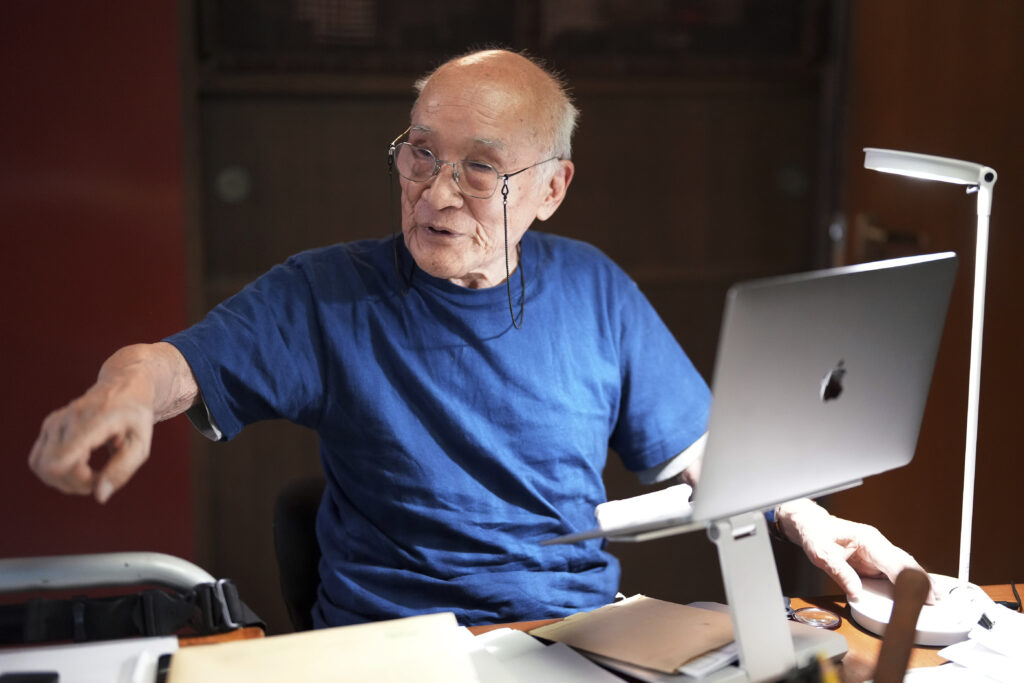
- ARAB NEWS
- 01 Aug 2025

TOKYO: Shuntaro Tanikawa, one of the leading poets of post-World War II Japan, died of old age at a hospital in Tokyo last Wednesday. He was 92.
Born in Tokyo in 1931 as the eldest son of philosopher Tetsuzo Tanikawa, Shuntaro Tanikawa started writing poems as a teenager.
His talent caught the attention of famous Japanese poet Tatsuji Miyoshi, and his first book of poems, “Two Billion Light Years of Solitude,” was published in 1952.
The work drew attention for Tanikawa’s high sensitivity and deep appreciation of the world, as well as an underlying ethical theme based on his own war experience, and made Tanikawa known as a newcomer in postwar poetry.
Tanikawa continued to attract a wide range of readers with his fresh imagery style. Gradually taking an experimental approach in his poetry books such as “Definitions” and “Coca-Cola Lessons,” Tanikawa created a new trend in modern poetry together with fellow Japanese poets such as Makoto Ooka.
In 1962, Tanikawa received the Japan Record Award for best lyricist for children’s song “Getsu Ka Sui Moku Kin Do Nichi no Uta.” He also wrote the lyrics for the theme song of Osamu Tezuka’s anime Astro Boy.
Tanikawa’s works were acknowledged widely by children through poetry books such as “Warabeuta” and “Yoshinashi-uta,” in which he explored the possibilities of hiragana, the Japanese alphabet, and through Japanese translations of overseas works such as Leo Lionni’s Swimmy, a famous U.S. picture book, and U.S. comic Peanuts by Charles Schulz.
Tanikawa received the Hagiwara Sakutaro Prize in 1993 for “Sekenshirazu,” the Nobuo Ayukawa Award in 2010 for “Tromso Collage,” and the Miyoshi Tatsuji Award in 2016 for “On Poetry.”
Tanikawa’s creative appetite continued into his late years, and his works have been translated into many different languages.
JIJI Press